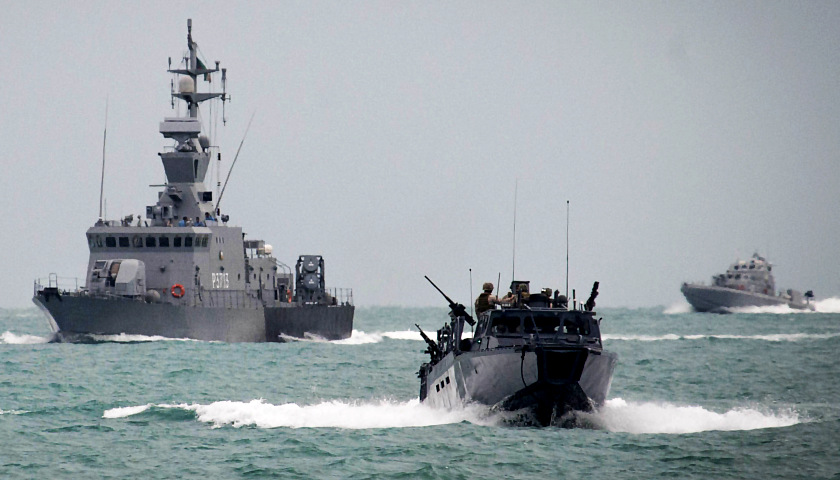by Will Racke
China responded Friday to new U.S. sanctions against its military, demanding Washington withdraw the penalties or face retaliatory measures.
Beijing’s response came a day after the Trump administration imposed sanctions on China’s arms procurement agency for buying Russian-made fighter jets and missile systems, in violation of a 2017 U.S. sanctions law aimed at Russia.
“China expresses strong indignation at these unreasonable actions by the U.S. side and has already lodged stern representations,” Chinese Foreign Ministry spokesman Geng Shuang told reporters in Beijing, according to Reuters.
 “We strongly urge the U.S. side to immediately correct the mistake and rescind the so-called sanctions, otherwise the U.S. side will necessarily bear responsibility for the consequences,” he added, without elaborating on a potential response.
“We strongly urge the U.S. side to immediately correct the mistake and rescind the so-called sanctions, otherwise the U.S. side will necessarily bear responsibility for the consequences,” he added, without elaborating on a potential response.
The secondary sanctions against Beijing were imposed under the Countering America’s Adversaries Through Sanctions Act (CAATSA), which was enacted to punish Russia for meddling in the 2016 presidential election. It also targets Russia for its military interventions in Ukraine and Syria.
Thursday’s round of sanctions hit China’s Equipment Development Department and its director, Li Shangfu, over purchases of Russian Su-35 fighter jets and an S-400 surface-to-air missile system. The Trump administration called the measures “a significant step” because they marked the first time anyone has been punished for doing business with an entity on the CAATSA blacklist.
Along with the sanctions on China’s military, the State Department added 33 people and entities connected to Russian military and intelligence agencies to the blacklist, bringing the total to 72.
“The ultimate target of these sanctions is Russia,” a senior administration official speaking on the condition of anonymity told reporters Thursday. “CAATSA sanctions in this context are not intended to undermine the defense capabilities of any particular country.”
“They are instead aimed at imposing costs upon Russia in response to its malign activities,” the official added.
China is one of Russia’s top five customers for arms sales, along with India, Pakistan, the United Arab Emirates (UAE), and Saudi Arabia. Beijing bought about $15 billion in Russian-made weapons in 2017, the South China Morning Post reported, citing the Russian military export agency.
U.S. sanctions on Beijing have raised the prospect that Washington will eventually find itself in the position of having to punish friendly governments for their own purchases of Russian weapons. After the the U.S., Russia is the world’s second largest weapons seller, and it often does arms deals with Washington’s strategic partners.
Other foreign policy observers worry that broad enforcement of secondary sanctions could drive both geopolitical rivals and allies to seek alternatives to U.S.-dominated financial channels.
“There are growing concerns that the United States’ aggressive use of sanctions carries long-term, systemic costs as well,” Peter Harrell, a senior fellow at the Center for a New American Security, wrote in Foreign Affairs. “It may finally spur allies and major global companies to develop alternatives to the financial and trading channels that give U.S. sanctions enormous global weight.”
– – –
Will Racke is a reporter at Daily Caller News Foundation. Follow Will on Twitter.





